
The Best Ways to Arrange Your Living Room Layout
Not all homes are built the same. Some have a conventional square-shaped living room, which makes arranging your furniture a breeze; while others have a long and narrow space that might require more creativity.
That’s why planning your living room layout is so important so you can create a balanced and cohesive space where everything flows seamlessly.
While there’s no one-size-fits-all approach, let’s dive deeper into the 9 different types of living room layouts and how you can arrange your furniture!
Tips when planning your living room layout
Before diving head first to arrange or rearrange your furniture, let’s first take a look at some tips to create a functional but also aesthetically pleasing space.
Assess your space: Note the architectural features, such as windows, doors, and focal points like a fireplace or an expansive window. Understanding the layout will help you make informed decisions about furniture placement.
Establish a focal point: Every living room needs a focal point - a central element that draws the eye and anchors the space. Arrange your furniture to highlight this focal point, creating a natural flow and balance in the room.
Create conversation areas: Arrange your furniture in a way that encourages face-to-face interaction. Consider placing armchairs and sofas around a central coffee table, ensuring everyone has easy access to engage in discussions.
Mind the traffic flow: Keep pathways clear and unobstructed to ensure easy movement throughout the space. Arrange furniture in a way that allows for smooth traffic flow, taking into account doorways and high-traffic areas.
Balance proportions: Mix and match furniture pieces of varying heights and sizes to create interest and dimension. Avoid clustering all the large pieces on one side of the room, as this can make the space feel lopsided. Instead, distribute visual weight evenly for a balanced look.
9 living room layout ideas
The social hub
This layout is well-suited for living rooms that prioritise socialising, gatherings, and intimate conversations.
Create a social hub by arranging your furniture in a circular or semi-circular layout. Place a sectional sofa or a curved sofa in the centre of the room, serving as the focal point. Surround it with accent chairs or ottomans to accommodate guests.
Arranging it in this manner encourages intimate conversations and creates a cosy gathering space for friends and family.
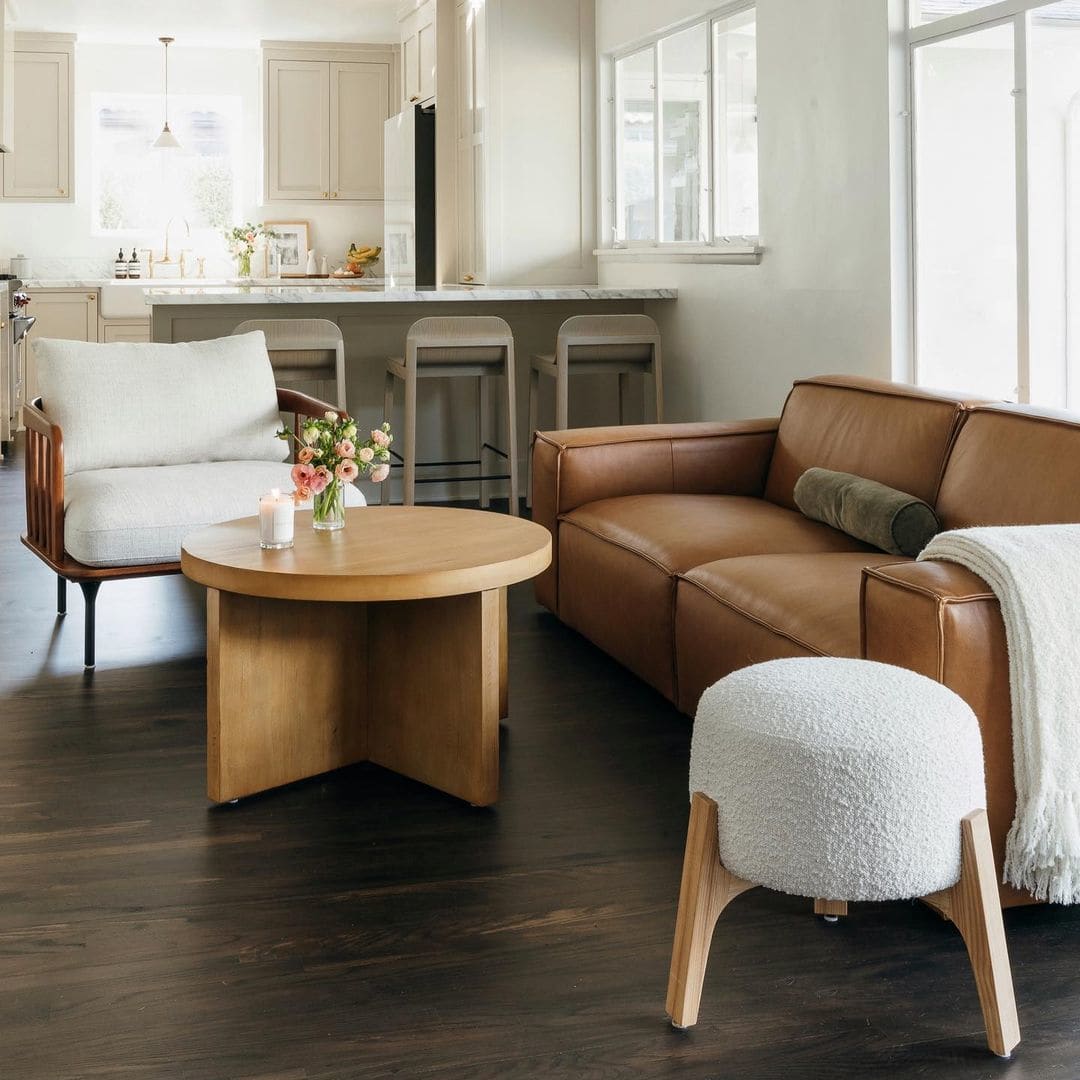
The Jonathan Leather Sofa, Wayne Armchair, and Kit Bouclé Stool are arranged to form a semi-circular layout that promotes conversation. Picture credits: @monicawangphoto
The classic L-shaped arrangement
This arrangement is great for small to medium-sized living rooms as you can make most use of the often overlooked space: the corners.
Flush an L-shaped sofa against the corner of your living room, with the longest side of the sofa against the wall. Add other pieces like armchairs around the sofa to complete the arrangement, with a coffee table in the centre for added convenience.
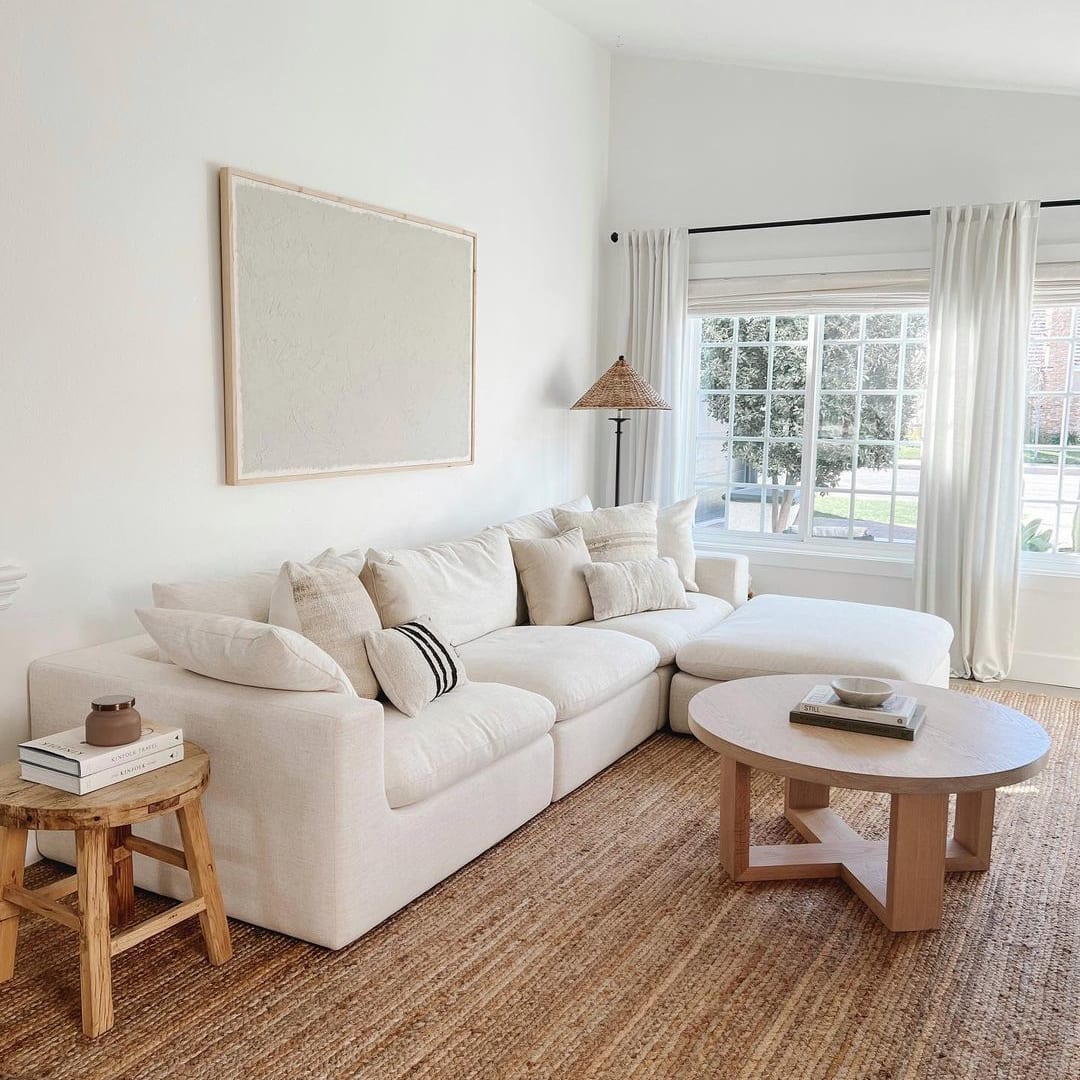
@theressnowplacelikehome creates an L-shaped configuration with the Dawson Extended Sofa and Ottoman. Also featured, the Casa Round Coffee Table
Recommended read: 12 Tips for Arranging L-Shaped Sofas in Your Living Room
The formal symmetrical arrangement
This arrangement is what usually comes to mind when planning your living room layout because It’s a versatile arrangement that fits into most living rooms.
This formal look creates balance and harmony as the idea is to use two matching sofas that face each other. Add a rug or coffee table to anchor the seating area and tie the space together. This layout is perfect for traditional living rooms, creating a polished and sophisticated atmosphere.
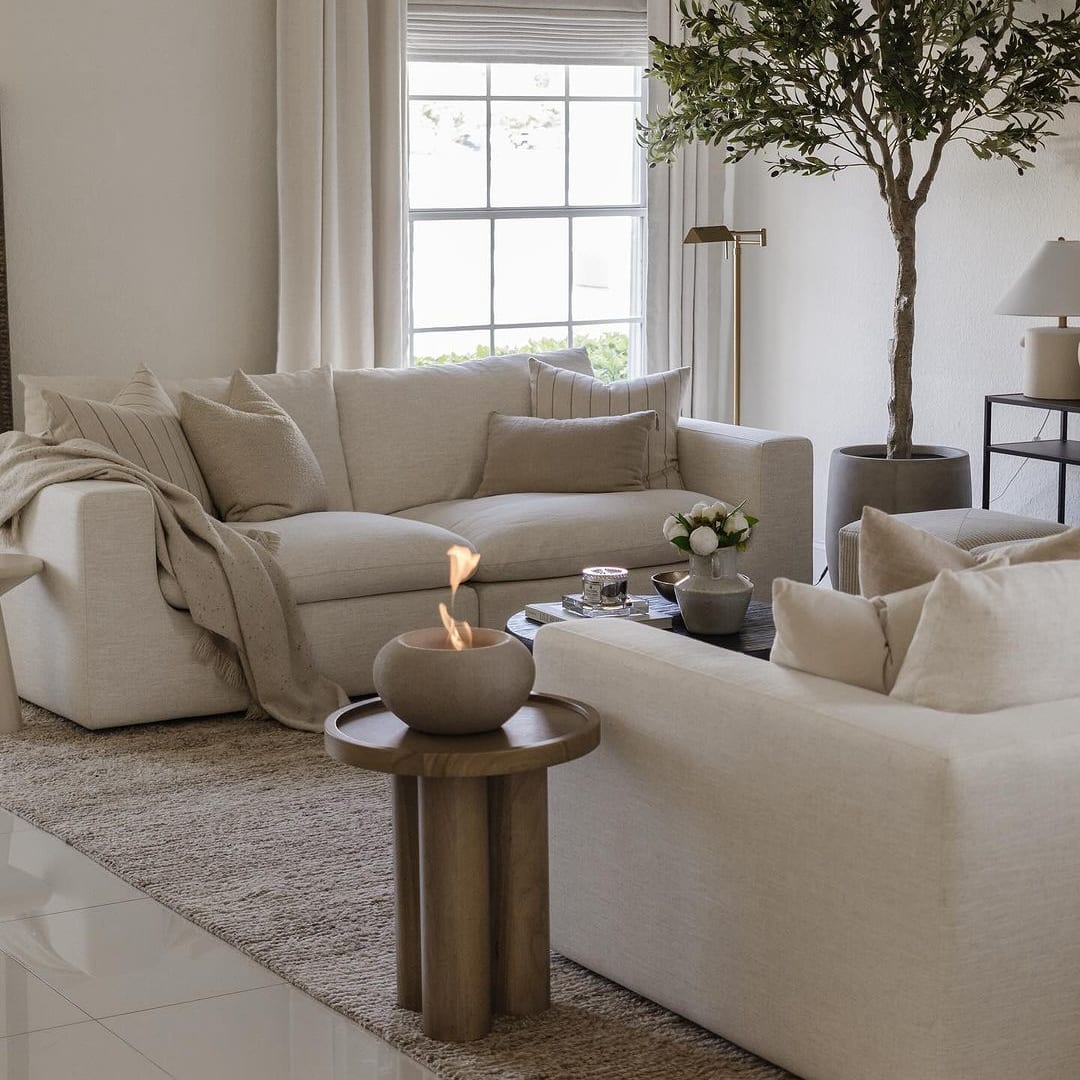
@mywellihousedecor creates a beautiful formal arrangement with two Dawson Sofas.
For a more casual look that follows the same concept, you can consider swapping out one of the sofas for two armchairs instead.
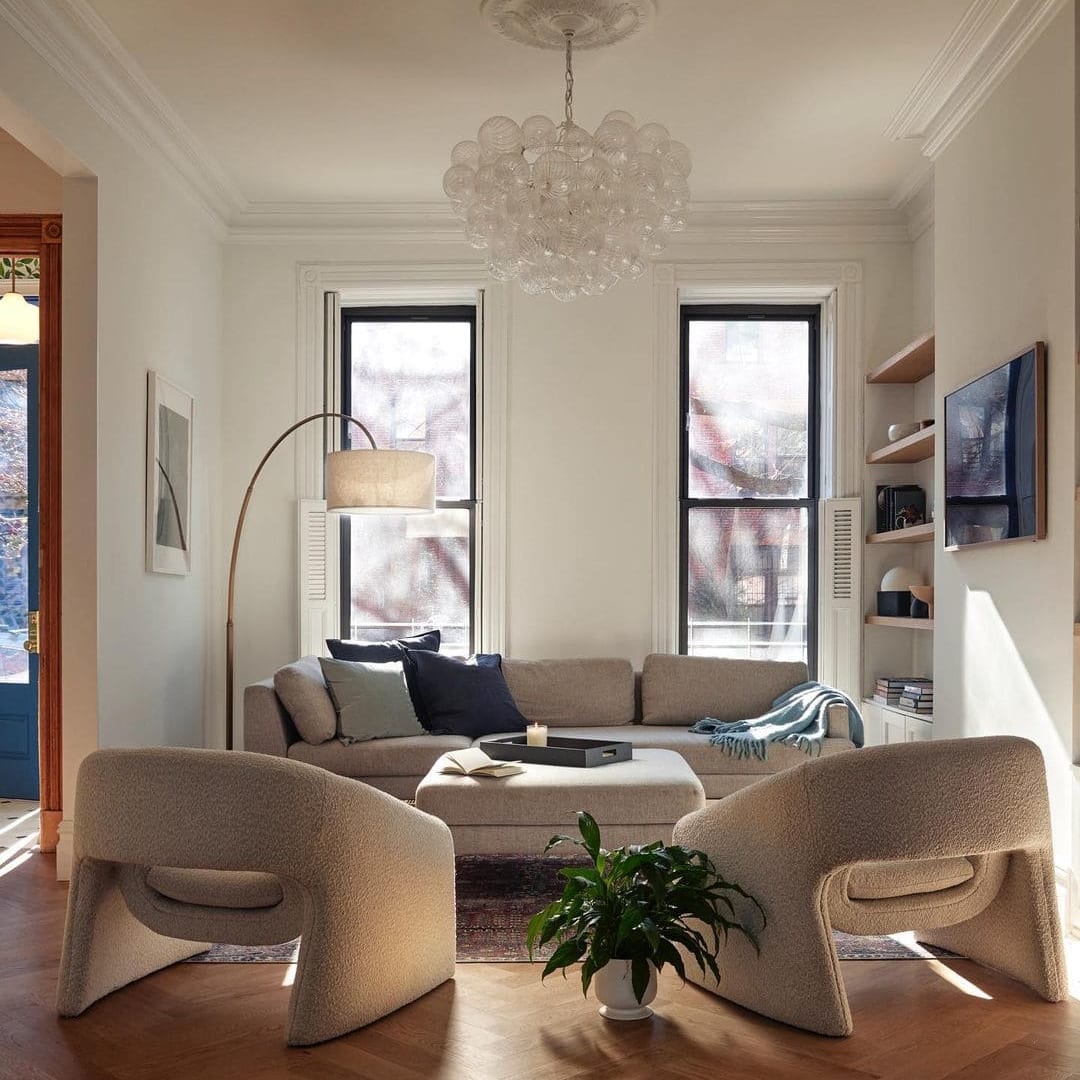
@brownstoneboys creates a more casual version of a formal arrangement with two Sacha Performance Bouclé Armchairs.
The corner retreat
Another great way to make use of unused corners in your living room is to create a cosy reading nook or relaxation corner.
Place a comfortable armchair or chaise lounge in a corner with a floor lamp and a small side table to create a secluded retreat for quiet moments.
Add plush pillows and a soft throw blanket for added comfort and style. This layout maximises space and adds a touch of charm to your living room.
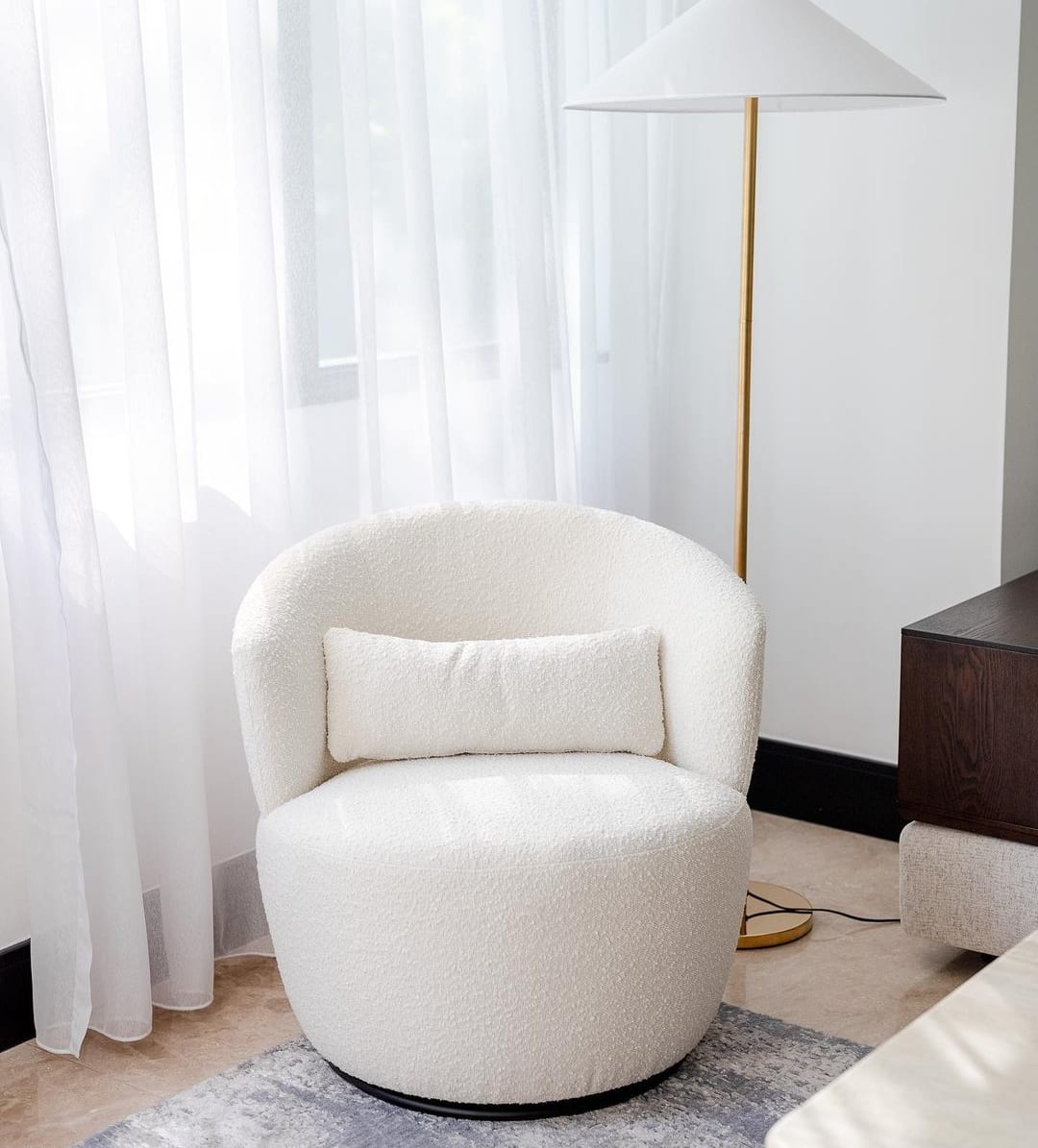
Add task lighting like what @modernasianlife did to create a functional reading space. Pictured: Amber Bouclé Swivel Chair in Snow
The open concept
If you have an open-concept living room that flows into other areas like the dining room or kitchen, consider creating zones within the space.
Use area rugs, furniture placement, and lighting to define separate areas for lounging and dining while maintaining a cohesive look. Arrange furniture in a way that delineates each zone while still allowing for easy movement and interaction between areas.
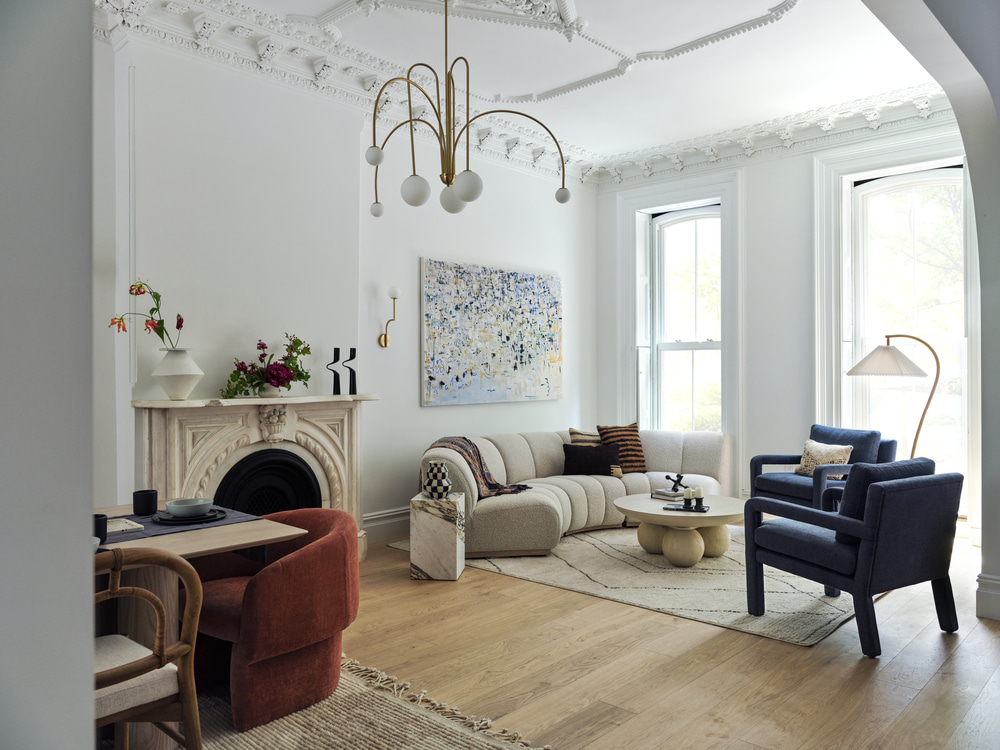
@brownstoneboys arranges the Marlow Performance Bouclé Curve Sofa tastefully in this combined living and dining area.
The dual seating area
For living rooms that serve multiple functions, consider a layout that accommodates different activities.
Position a sofa in the centre of the space, which will serve as the main seating area for watching movies or relaxing. Then, create a secondary seating area with a pair of armchairs or a 2-seater sofa arranged around a coffee table for reading or enjoying a cup of coffee. This layout allows for versatility and flexibility in how the space is used.
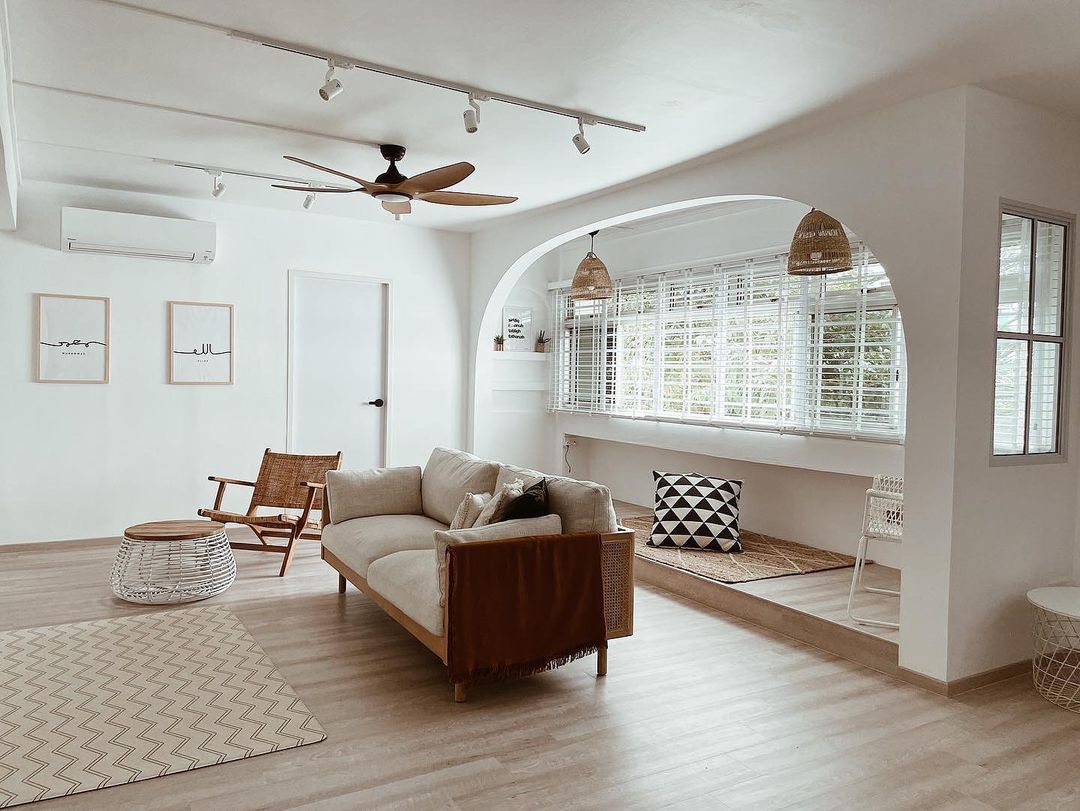
@ourlittlesarang creates a cosy seating space behind the main seating area in the living room. Pictured: The Lucia Cane Sofa in White Wash.
The TV-centred setup
For living rooms centred around TV viewing, arrange your furniture to focus on the television. Position the TV on a central wall, with the sofa directly facing it for optimal viewing.
Place additional seating such as armchairs or recliners adjacent to the sofa to accommodate guests.
Consider mounting the TV on the wall or using a media console to keep cords and electronics organised. This layout is ideal for family rooms or spaces dedicated to entertainment.
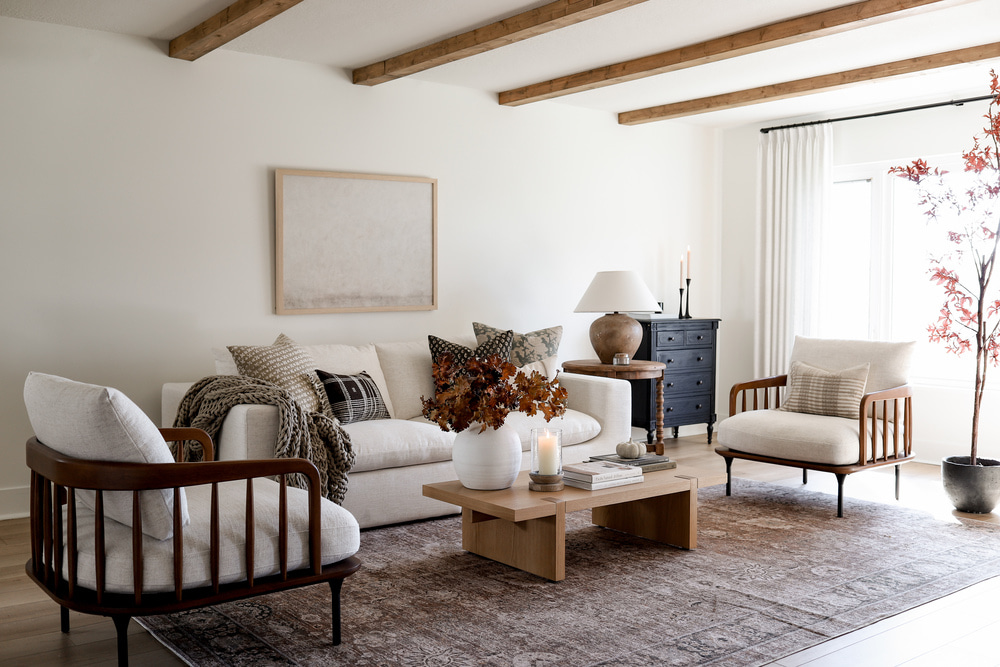
The Dawson Sofa, Wayne Armchairs, and Mori Coffee Table create the perfect TV-centred living room layout. Picture credits: @halfway_wholeistic
The U-shaped arrangement
The U-shaped arrangement for a living room involves positioning the furniture in the shape of the letter ‘U,’ typically with a sofa or sectional forming the base of the U and additional seating or complementary pieces filling in the sides.
This arrangement is ideal for expansive living rooms or large families as it offers generous seating options. The setup of the seating pieces also delineates the area intended for lounging and socialising, making the room feel organised and cohesive.
You can consider using U- or C-shaped sofas without the extra armchairs if you have less space to work with but still want to offer ample seating.
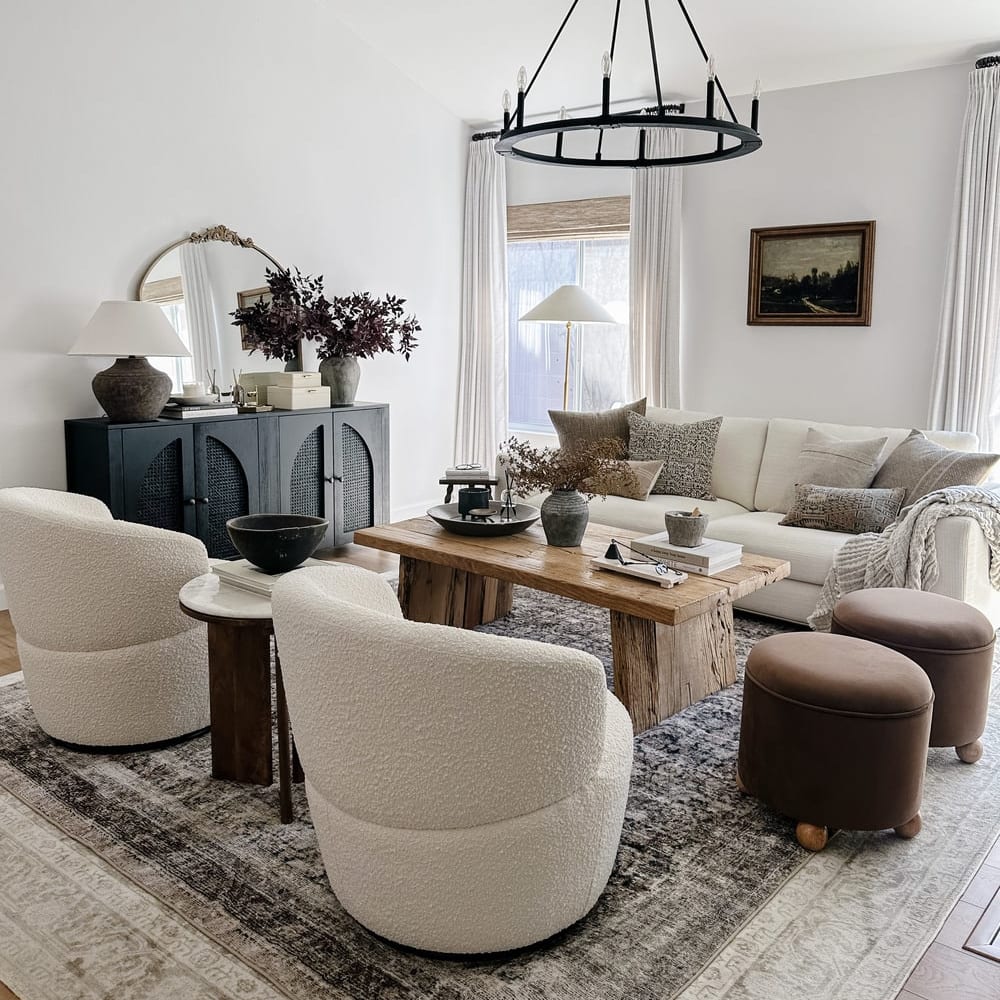
@beauxarts107 creates a U-shaped layout with the Hamilton Sofa, Amber Bouclé Swivel Chairs, and two stools.
The open and airy setup
If you have a small living room or just want to maximise your already tall ceilings, this layout is for you!
Arrange furniture away from the walls to create a more spacious feel, with the sofa floating in the centre of the room. Use low-profile pieces to maintain an unobstructed view, promote better traffic flow, and create the illusion of a larger space.
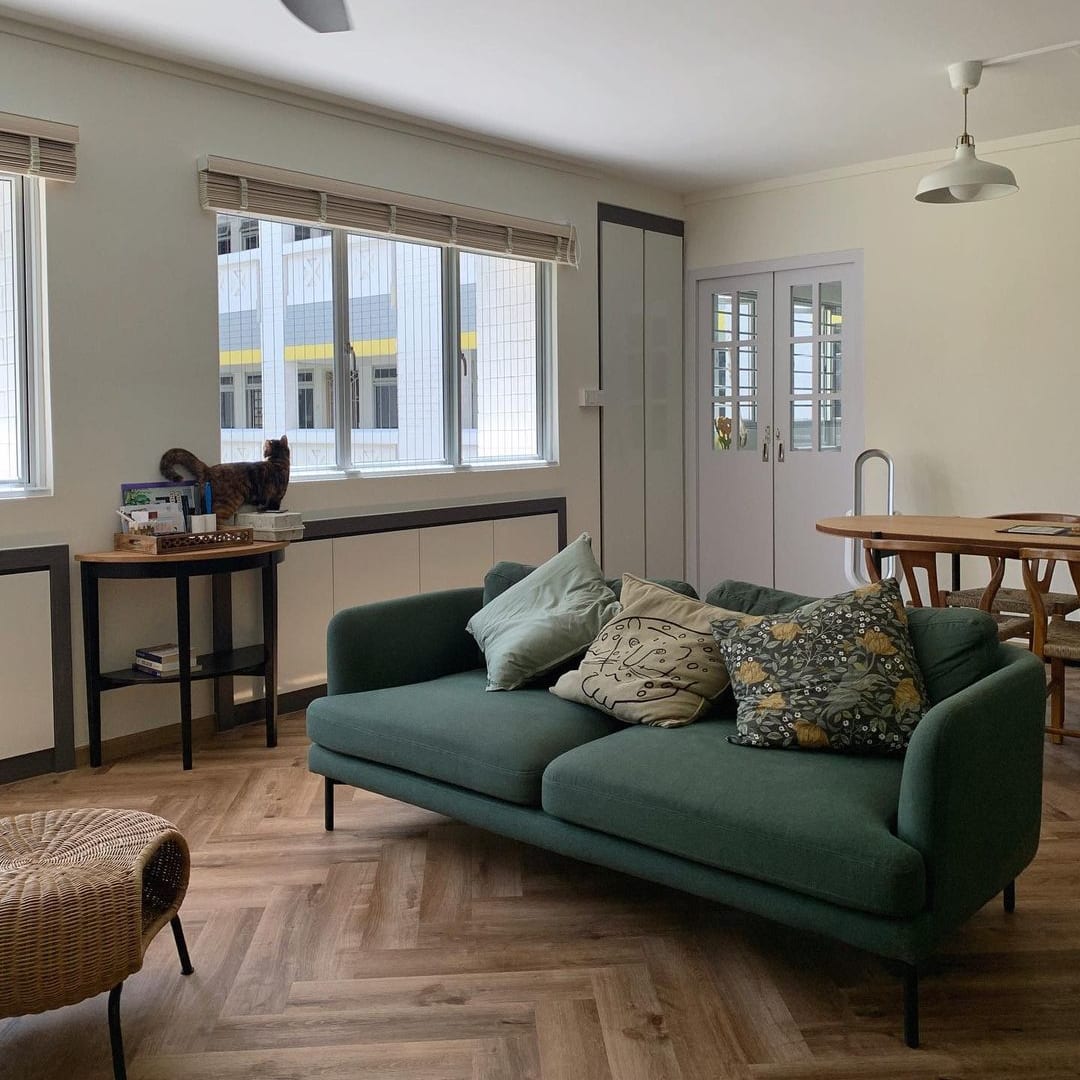
@ourwhampoahouse creates a bright and airy space by placing the Pebble 2-Seater Sofa in the middle of the space.
Arranging your living room furniture is not just about creating a functional layout; it's about crafting a space that reflects your personality, promotes comfort, and fosters connection. Whether you opt for a setup like the L-shaped arrangement or the TV-centred configuration, don’t forget to assess your space to determine the best layout for your living room.
Frequently asked questions about living room layouts
What are some tips for arranging furniture in a small living room?
If you have a small living room, adopt the ‘less is more’ approach and consider using multifunctional furniture so you don’t overcrowd the room. Ensure that furniture is also scaled appropriately to the size of the room.
What’s the best living room layout?
It depends on several factors like the available floor space, your lifestyle, and also the aesthetics you’re going for. For example, a U-shaped living room arrangement might not be the most ideal for small spaces as it can overwhelm the room. It’s best to assess your space when planning your living room layout to determine what works best for you.
